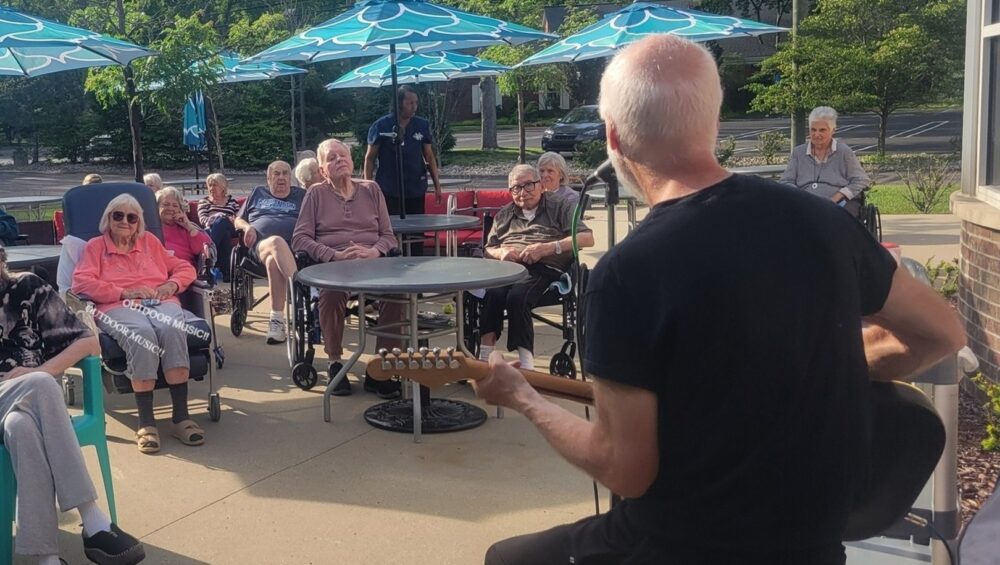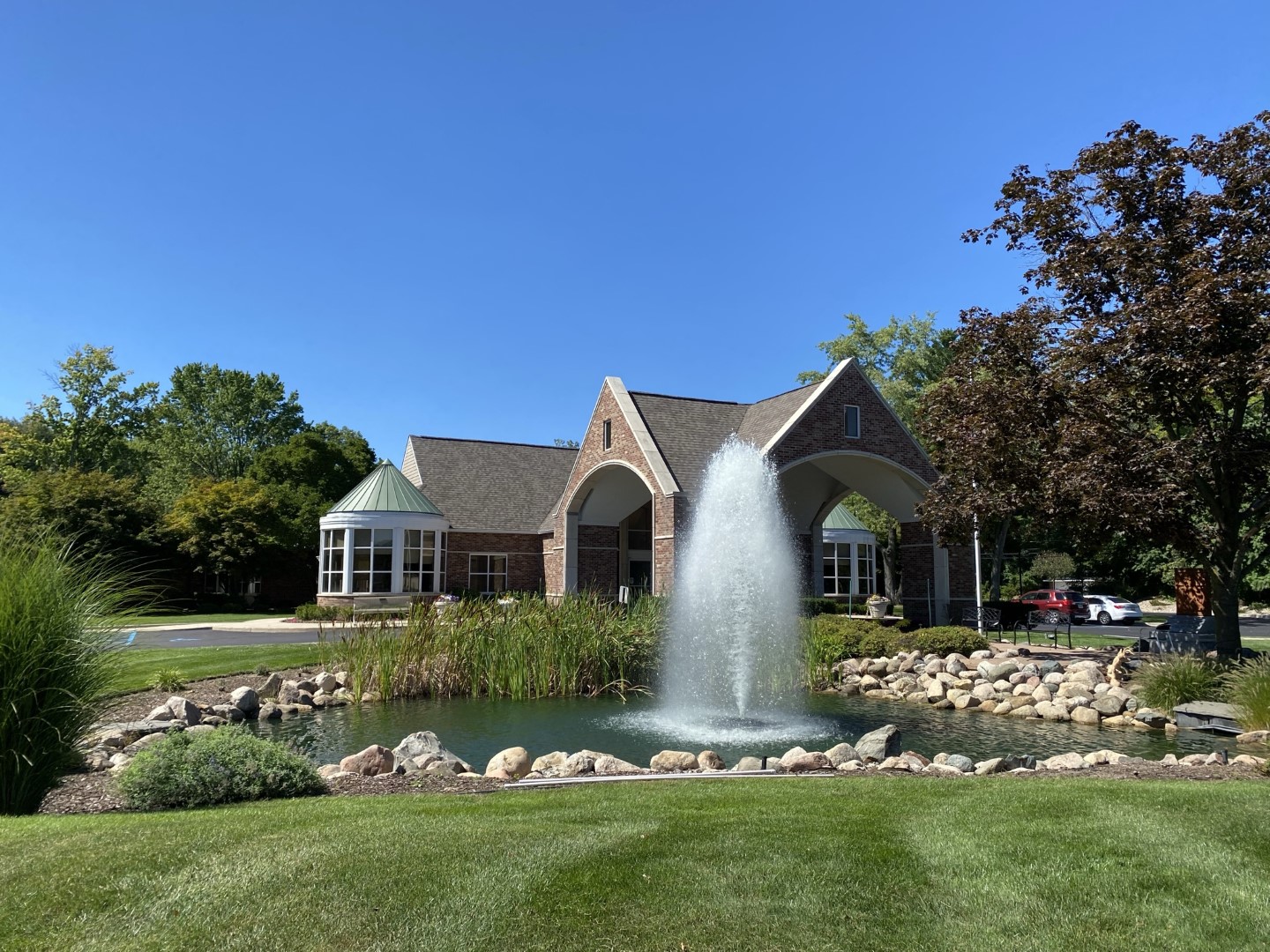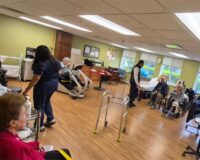Music has long been a powerful form of expression and connection, influencing our lives in countless ways. For seniors, the therapeutic effects of music can be profound, enriching their quality of life both physically and emotionally. In assisted living communities, music is often incorporated as a key part of resident engagement activities, creating an environment that promotes happiness, relaxation, and connection. Whether through listening to familiar tunes, participating in music therapy, or enjoying live performances, seniors can experience a wide range of benefits that contribute to their overall well-being. This article explores seven detailed examples of how music positively impacts seniors, highlighting its unique ability to uplift, heal, and inspire.
-
-
Enhances Cognitive Function
-
Music stimulates multiple areas of the brain, which is especially beneficial for seniors experiencing memory challenges or cognitive decline. For individuals with dementia or Alzheimer’s disease, familiar music can trigger memories and emotions from their past, providing a sense of comfort and recognition. Studies have shown that music helps to improve short-term memory, concentration, and even problem-solving abilities. For seniors in assisted living communities, regularly engaging with music can help maintain cognitive health by keeping the mind active and stimulated.
-
-
Reduces Stress and Anxiety
-
As seniors age, they may face feelings of anxiety or stress related to health issues, changes in living situations, or the loss of loved ones. Music has been proven to reduce levels of cortisol, the body’s stress hormone, which can help seniors feel calmer and more relaxed. Soothing music with slow tempos, such as classical or instrumental pieces, can induce a meditative state, promoting relaxation and reducing symptoms of anxiety. For seniors, participating in music therapy or simply listening to calming music during the day can be a wonderful tool for managing stress and maintaining emotional well-being.
-
-
Improves Physical Health
-
Music can have a direct impact on physical health, especially when it comes to movement and exercise. Many assisted living facilities incorporate music into exercise programs, using upbeat rhythms to motivate seniors to engage in light physical activity. Music encourages seniors to participate in gentle movement exercises, such as chair dancing, stretching, or clapping along to the beat, which helps improve circulation, flexibility, and muscle strength. Moreover, music with a strong rhythm can assist with gait training for seniors with mobility issues, helping them regain confidence in their movements.
-
-
Boosts Mood and Emotional Well-Being
-
Listening to favorite songs or musical genres can immediately elevate a senior’s mood, providing an emotional lift that can last throughout the day. Music is closely tied to personal memories and emotions, and it can evoke positive feelings of nostalgia and joy. Seniors often experience mood fluctuations, particularly those in long-term care settings, and music can provide an effective way to combat feelings of sadness, loneliness, or depression. For instance, singing along to familiar tunes or attending a live music performance can bring a sense of excitement and connection, reducing feelings of isolation and boosting overall happiness.
-
-
Encourages Social Interaction
-
One of the most significant benefits of music for seniors is its ability to foster social engagement. Group music activities, such as sing-alongs, drumming circles, or live concerts, offer opportunities for seniors to come together and share a common experience. This social interaction is crucial for maintaining a sense of belonging and community, especially in assisted living environments. Music provides an easy and enjoyable way for seniors to bond with others, participate in shared activities, and create new friendships. For those who may feel isolated or disconnected, group music sessions can be an important lifeline to social interaction.
-
-
Promotes Self-Expression and Creativity
-
Music allows seniors to express themselves in ways that words may not always permit. Whether through singing, playing an instrument, or simply listening to meaningful songs, music gives seniors the opportunity to tap into their creative side. Music therapy sessions, in particular, provide a structured yet flexible space for seniors to explore their emotions, communicate their feelings, and express their individuality. For some, this may mean learning to play an instrument for the first time, while for others, it could involve writing lyrics or creating playlists that reflect their personality. This creative engagement can lead to a greater sense of self-worth and fulfillment.
-
-
Provides Comfort During Transitions
-
Music has a unique ability to provide comfort during difficult times, such as when seniors are facing health challenges, moving to assisted living, or coping with the loss of a spouse. Familiar songs from their past can create a sense of continuity and stability, helping them navigate transitions with greater ease. In end-of-life care, music therapy is often used to provide emotional and spiritual support, helping seniors feel more at peace. By offering comfort and emotional solace, music can be a powerful tool in helping seniors feel more secure and connected, no matter what changes they may be facing.
The benefits of music for seniors are wide-ranging, touching on nearly every aspect of their well-being, from cognitive function to emotional health. Whether it’s through enhancing memory, reducing stress, or promoting social interaction, music serves as an accessible and effective way to improve the quality of life for seniors. Assisted living communities that incorporate music into their daily routines create an environment where residents can thrive, feel connected, and maintain a positive outlook on life. By understanding and embracing the power of music, we can help seniors experience joy, healing, and fulfillment in their later years.





